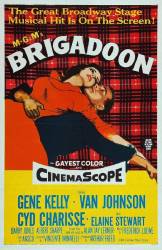
Question: Can someone explain to me how the enchantment over the village works? I haven't seen the movie for a while, but when Fiona takes Tommy and Jeff to see the teacher who tells them the story of how the place became magical, he says something about the village waking up every hundred years. So is every day a hundred years later in the real world and only a day to them? It just seems strange that Charlie and Jean would wait hundreds of years to get married, and after Harry dies, Fiona's dad says that everyone can find out in the next morning (which would be a hundred years later). Also when Tommy comes back at the end, the village comes to life again even though it disappeared into the mist when him and Jeff were leaving to go back to New York.
Answer: The way it works is, the village comes to life for one day once every one hundred years. It is not the same day over and over. It is always one day forward. For example if the one full day that the village came alive was on June 1st, then after one hundred years, the next day would be June 2nd, then another one hundred years, June 3rd, and so on. Each time the villagers awaken, the passage of time to them is always like only one day had passed.
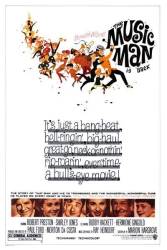
Question: If the movie was supposedly taking place in Indiana, why then during town meeting to runoff the band director did Marian tell the town folks to "put aside your Iowa stubbornness"?
Answer: The movie doesn't take place in Indiana. It takes place in River City, Iowa, which is established multiple times throughout the movie.
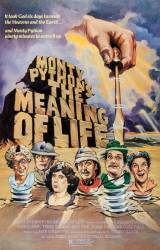
Question: At imdb's trivia section for this movie there's a mentioning of the Michael Palin line "Hey, but I didn't eat the mousse" line being an ad-lib. What scene is this in?
Answer: At the end scene where death shows up to the dinner party and kills everyone. They all die because they eat bad salmon mousse. After their spirits leave their body, Michael Palin says the line.

Question: Why did Sterling Holloway quit voicing Winnie The Pooh after providing his voice in this movie?

Question: P.L. Travers hated Disney's film adaptation of Mary Poppins so much that she refused to have Disney make any more adaptations of Mary Poppins. How could a sequel be made without the consent of Travers, especially since she died in 1996?
Answer: Travers was never entirely opposed to having a sequel made. She initially refused Disney's sequel ideas, and attempted to impose her own demands and concept on what any additional film would be. In the 1980s, Travers and a friend wrote their own screenplay. The Disney company, now with different management, considered it but eventually dropped the project amid casting problems and other issues and conflicts that emerged. After Travers' death, Disney could then negotiate directly with Travers' estate.
Answer: The short answer is *because* she died. Control then passed to her beneficiaries/estate. She didn't forbid Disney from making a sequel, and she couldn't legally prevent it either. The deal she had with Disney just meant that they had to agree on it as she had creative control, and despite their (and apparently her) best efforts, they could never find a sequel idea everyone was happy with, especially given her dislike of the original film. Her will stated: "Any payments received by my Trustees in respect of or any future commercial production or exploitation in any form whatsoever of any books I have written (including any sequel to the film "Mary Poppins") shall be held by my Trustees upon trust to distribute..." On her death creative control passed to her trustees, in terms of sequels and the stage show, and they managed to agree on a sequel idea.
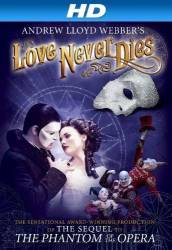
Question: How is it possible, given that Erik killed him in Phantom, that Piangi is a prominent character in Love Never Dies?
Chosen answer: I can't understand how you think Piangi is in Love Never Dies, let alone is a prominent character. Piangi is not a character in the original play or the 2012 version.
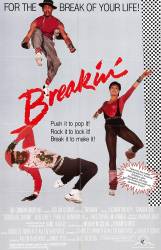
Question: Does anybody know if there are non-credited cameos in this film? During the scene on the beach, where the girl meets the two dancers, I think I see a young Jean-Claude Van Damme in the crowd wearing a black spandex suit and the kid from Revenge of the Nerds holding a soccer ball.
Answer: According to IMDB.com, the following actors were uncredited in this film: Michel Qissi, Passerby in first dance sequence - Lela Rochon, Extra in first scene - Kara Vallow, Break Dancer - Jean-Claude Van Damme, Passerby in First Dance Sequence.
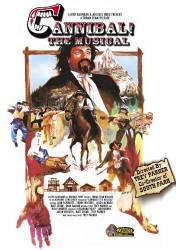
Question: Does anyone know if there is a soundtrack (CD) for this movie available anywhere?
Answer: I doubt it as, the film was made during Parker's college years, but every song asis available as an mp3 at www.cannibalthemusical.net.
Answer: You can now buy it via the link - it became available in May 2024: https://www.klaaturecords.com/products/cannibal-the-musical-music-from-the-motion-picture-soundtrack.
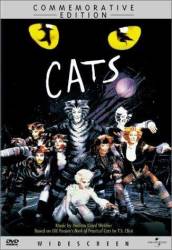
Question: What is the story behind Grizabella? Why do the other cats seem to hate her and shun her?
Answer: It's a bit vague, but when Grizabella was young, she left the other Jellicle cats, turning her back on them to live another life, thinking she was more glamorous than the others. Now that she is older and has fallen on hard times, she returns, wanting to rejoin the tribe. The other cats are resentful that she considered herself better than them, and they are put off by her shabby appearance, so do not want her back.

Question: Is Ramin Karimloo (in the grey suit and bowler hat, without his Phantom make up) sitting to our right of Carlotta during the rehearsal for Don Juan Triumphant? (01:39:40)
Chosen answer: Although that would be funny, I rather doubt that's Ramin Karimloo. From the DVD's special features he revealed that it takes an hour to transform him into the Phantom. Since this was filmed live on stage, it would be very impractical to have him take the makeup off halfway through the musical.

Question: Why did the Princess not have money with her at the market? She could easily disguise herself as a lower-class person who has some amount of money with her, like the other shoppers.
Answer: Despite being a princess, Jasmine likely did not have access to money. Royals are known to never carry cash on their persons. Everything in Jasmine's life is controlled, and whatever she needs or wants is provided. She is young, naive, and has been so pampered and sheltered from the real world that she'd probably never consider how currency works.

Question: Does Maria die at the end of West Side Story?
Answer: No, she doesn't, but Tony is shot and killed.

Question: Why was Chiwetel Ejiofor hired to voice Scar? Why didn't they hire David Oyelowo (who voiced Scar in The Lion Guard)?
Answer: None of the cast of The Lion Guard was cast in the film, so why would Oyelowo have been? Ejiofor was cast because, in the words of director Jon Favreau, he "is just a fantastic actor, who brings us a bit of the mid-Atlantic cadence and a new take on the character. He brings that feeling of a Shakespearean villain to bear because of his background as an actor. It's wonderful when you have somebody as experienced and seasoned as Chiwetel; he just breathes such wonderful life into this character."

Question: Why did Shanti lure Mowgli into the village at the end? What was her reason for doing so?

Question: Why did Julie Andrews refuse her Tony nomination for this film?
Answer: She accepted the Oscar nomination for the film. She turned down the Tony nomination for the Broadway musical because no one else got nominated and she thought it was unfair.
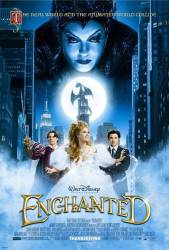
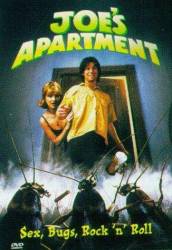


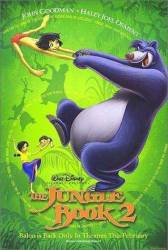
Answer: Obviously, Giselle didn't know. She was shoved into the wishing well by the hag and had no idea what had happened to her. Edward, being familiar with his stepmother's magic, was better prepared.
Super Grover ★